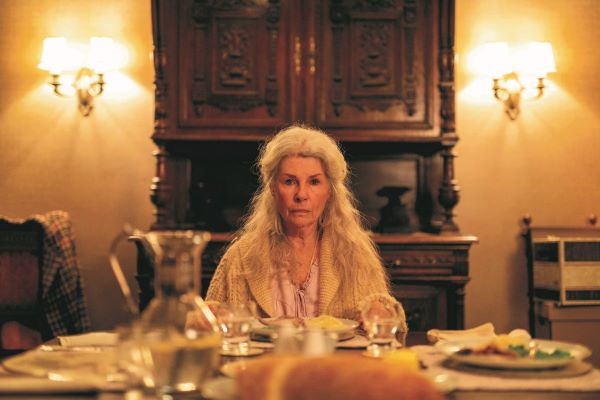‘It’s not her anymore,’ says Emily Mortimer‘s Kay of her mother Edna in Natalie Erika James debut, Relic. This is a phrase that will mean something different to viewers of, for example, Dawn of the Dead than to those watching Still Alice. James and co-writer Christian White muddy the waters between domestic drama and horror and freight those words with multiple meanings. Using the careworn tropes from tales of haunted houses and possession as metaphors for the very real cerebral horror of dementia, Relic is a palpably tense and intermittently powerful shocker that suffers from unsteady pacing and a subtle approach that clashes with the bluntness of its central analogy.
Kay and her daughter Sam (Bella Heathcote) arrive at the remote, rundown home of Edna (Robyn Nevin), after she is reported missing. Kay and her mother have not been close recently, and the same distance is infecting her relationship with Sam. Edna returns as if nothing has happened, but not before Kay and Sam have discovered, and been alarmed by, rotten food, creeping damp, and numerous post-it notes Edna has dotted around the house. They say things like; “Turn off tap”, “take pills”, “flush”, and more ominously, “DON’T FOLLOW IT”. The tensions build between the three women and as Edna’s condition gets worse, odd occurrences begin to indicate that there may be another presence in the house.
For much of the duration, the only thing that separates Relic from a standard family drama is the way it is framed. Anyone who has had to care for a relative with dementia will recognise their mercurial switches from lucidity to glassy vacancy. James uses this sense of the sufferer gazing blankly at a fixed point to give the sensation that Edna is peering at something or someone behind Kay and Sam. In this way the director utilises empty space to inspire unease and dread, in the same way as Leigh Whanell does in The Invisible Man. Atmosphere hangs heavy too in the silences barely filled by Edna, Kay and Sam. What has gone before is left largely in the ether, but the three actors do a fantastic job of getting across the crushing weight of the past, with all the attendant resentment, guilt, and regret. Mortimer’s Kay is as adrift in her own way as Edna, having opened a gulf of distance between herself and both her daughter and her mother and has to bear witness to the much closer relationship between Edna and Sam. Nevin is especially good, finding the kindness in Edna, but also capable of slipping into a deathless glare of horrendous malevolence in the blink of an eye.
Huge credit also goes to the production design. The ramshackle house feels like it has been poisoned by its own memories, with mould creeping into every corner. You get the sense that you could become possessed by the place simply by breathing in its fetid air. And then, in the final act, it snaps back in a breathless finale during which the walls literally begin to close in and Edna’s body begins to mirror the decay of the house as well as her mind. As it goes all House of Leaves, it does unfortunately highlight the problems with pacing. There’s nothing at all wrong with the slow-burn approach that patiently builds up tension, but Relic is so back-loaded that many will lose patience and even at 89 minutes it occasionally feels stretched.
For all that it takes its time getting there, Relic is worth the investment of time and patience with a climax both hugely disturbing and tenderly melancholic. A difficult balance to pull off, and only Haunting of Hill House and The Orphanage have carried it off with such aplomb in recent memory. At the same time, it really does ram home the central metaphor – you will not need to dig deep to uncover the symbolism – that you can inherit more than just property and trinkets. A curious mixture of subtlety and candour then, but one that is ultimately haunting and awash in both aching sadness and hopeful reconciliation. That is the trick in a really good ending; that is what it likely to stay with you.
In cinemas and On-demand from Fri 30 Oct 2020
